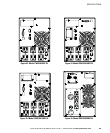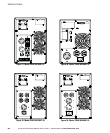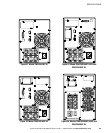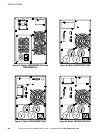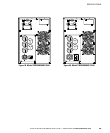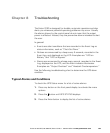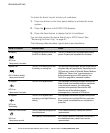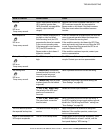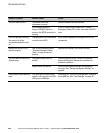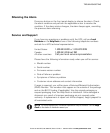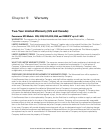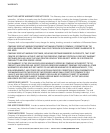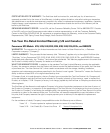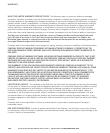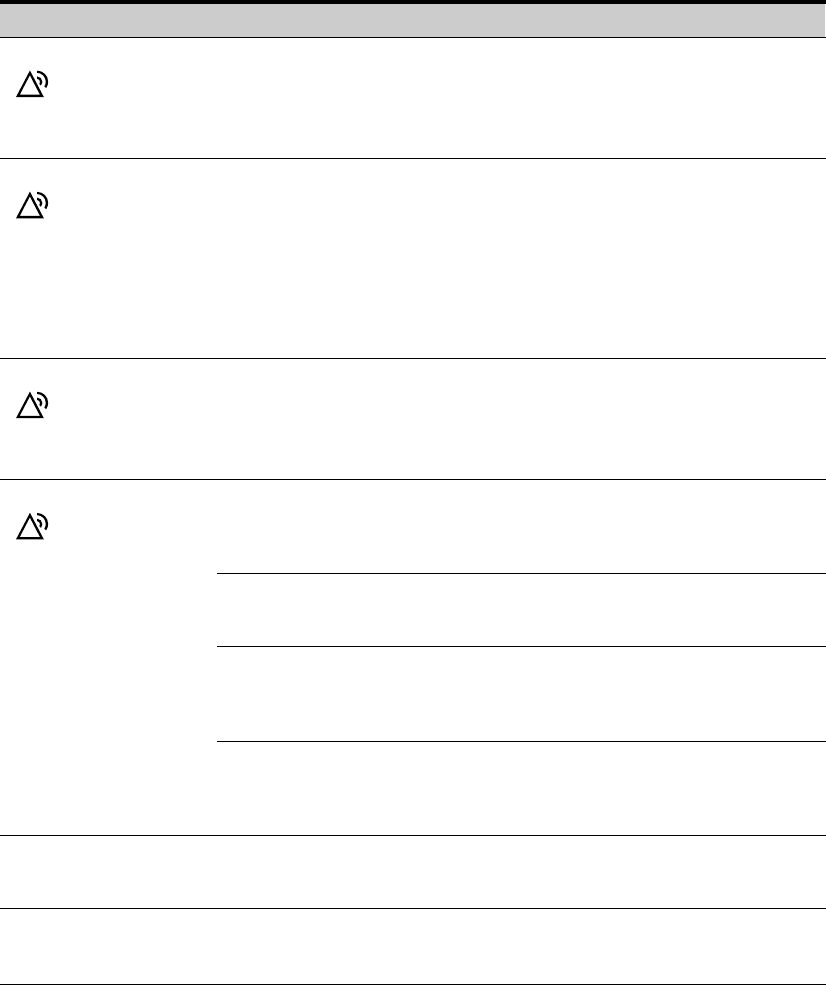
TROUBLESHOOTING
Eaton
®
9130 UPS (700–3000 VA) User's Guide S 164201718 Rev 2 www.powerware.com
103
ActionPossible CauseAlarm or Condition
Overload
LED is on.
1 beep every second.
Power requirements exceed the
UPS capacity (greater than
100% of nominal; see page 84 for
specific output overload
ranges).
Remove some of the equipment from the UPS. The
UPS continues to operate, but may switch to
Bypass mode or shut down if the load increases.
The alarm resets when the condition becomes
inactive.
Overtemperature
LED is on.
1 beep every second.
The UPS internal temperature is
too high or a fan has failed.
At the warning level, the UPS
generates the alarm but remains
in the current operating state.
If the temperature rises another
10°C, the UPS transfers to
Bypass mode or shuts down if
bypass is unusable.
If the UPS transferred to Bypass mode, the UPS will
return to normal operation when the temperature
drops 5°C below the warning level.
If the condition persists, shut down the UPS. Clear
vents and remove any heat sources. Allow the UPS
to cool. Ensure the airflow around the UPS is not
restricted. Restart the UPS.
If the condition continues to persist, contact your
service representative.
Battery Overvoltage
LED is on.
1 beep every second.
The UPS battery voltage is too
high.
The UPS turns off the charger until the next power
recycle. Contact your service representative.
Site Wiring Fault
LED is on.
1 beep every second.
“L” Models Only. Ground wire
connection does not exist, or the
line and neutral wires are
reversed in the wall outlet.
Have a qualified electrician correct the wiring.
“G” Models Only. Input is phase
to phase (neutral is not bonded
to ground).
Disable the Site Wiring Fault Alarm setting (see
“User Settings” on page 40).
“i” and “G (AU)” Models Only.
The polarity of the UPS input
power cord connector is
incorrect.
Rotate the Schuko input connector.
“i” and “G (AU)” Models Only.
The ground wire connection
does not exist.
Have a qualified electrician correct the wiring. If
the UPS is installed to input supply without ground,
disable the “Site Wiring Fault Alarm” setting (see
“User Settings” on page 40).
The UPS does not provide
the expected backup time.
The batteries need charging or
service.
Apply utility power for 48 hours to charge the
batteries. If the condition persists, contact your
service representative.
Power is not available at the
UPS output receptacles.
The UPS is in Standby mode. Supply power to the connected equipment: Press
the On/Off button for at least 1 second, until the
front panel displays “UPS starting...”.



